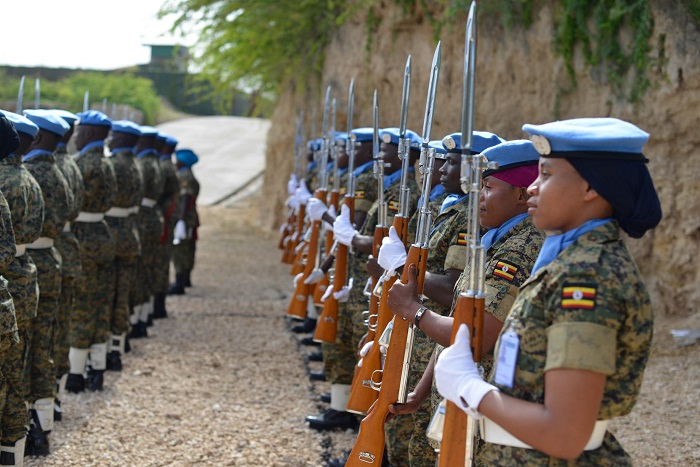
COMMENT: Providing security and fighting al-Shabaab isn’t enough – AMISOM can do much more in Somalia
By Meressa K Dessu and Omar S Mahmood
Addis, Ethiopia| ISSAFRICA| The mandate of the African Union (AU) Mission in Somalia (AMISOM) officially expires today, 31 May. Although the AU Peace and Security Council (PSC) extended the mission’s role until 30 November, its future, lies in the hands of the United Nations Security Council (UNSC).
A joint AU-UN strategic review of the 10-year mission – which has been both praised for its good work done under challenging circumstances and criticised for not having done enough – will influence the UNSC’s decision.
UN Secretary-General António Guterres noted both in March, and again this month at the London Conference on Somalia, that AMISOM ‘is under-equipped in relation to the needs … but it has been doing remarkable work in very precarious conditions’, and it has been ‘fighting to protect our global security … under a Security Council mandate, without enough support and with unpredictable funding’.
AMISOM is unique in that it’s entirely dependent on unreliable funding from donors
Despite these challenges, the mission – the biggest-ever AU-led peace operation to be authorised by the UNSC – has laid the foundation for improved governance, security and peace in Somalia by ejecting al-Shabaab from major urban centres and continuing to limit its violent activities.
And in its last push to defeat the extremist group before the mission’s planned total withdrawal from Somalia by 2020, AMISOM continues to seek financial and logistical support.
The mission is unique in that it is entirely dependent on unreliable funding from partners and donors; its main troop contributors are Somalia’s neighbours – Djibouti, Ethiopia, Kenya and Uganda – who all have security interests in the country; and it is engaged in an all-out war with al-Shabaab.
Based on these challenges, AMISOM has seen both major success and outright failure over the past decade, compounded by severe losses in manpower. Some speculate that AMISOM’s sacrifices total more than the UN’s losses over 70 years of peacekeeping operations.
While the mission has been praised, it has also received criticism for not having done enough in terms of building the capacity of Somalia’s institutions, especially regarding governance, security and justice. The challenge to secure areas recovered from al-Shabaab and hand over primary responsibilities to Somali security actors continues to vex the mission because of the gap in institution-building.
But to be fair, has AMISOM been given the proper mandate and capability to do so?
 The Independent Uganda: You get the Truth we Pay the Price
The Independent Uganda: You get the Truth we Pay the Price





